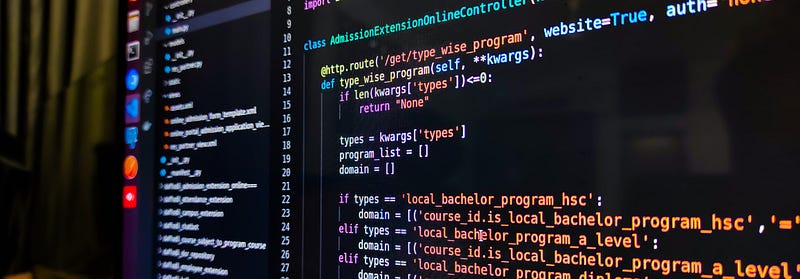Optimizing Your Software Engineering Development Setup in 2023
Written on
Chapter 1: Introduction
As a software engineer, establishing a dependable and efficient local development environment is vital for ensuring productivity and achieving project success. Over the years, I have refined my setup to enhance my workflow and maximize my output. In this article, I will detail my local development setup and the key tools and configurations that have significantly impacted my work.
If you are involved in data science or have an interest in machine learning, I recommend checking out my article on my data science local development setup, as some configurations differ from this one.
My Data Science Local Development Setup in 2023
Whether you're a software engineer, a data scientist, or someone looking to improve their development environment, I hope this article provides you with useful insights to enhance your local setup.
Programming Language
Python is an invaluable programming language that continues to prove its utility across various domains in software engineering. Its flexibility and extensive library ecosystem make it the preferred choice for developers engaged in web applications, data analysis, or machine learning projects.
Terminal
When it comes to replacing the standard macOS Terminal application, I prefer iTerm2. This tool offers numerous features such as split panes, customizable hotkeys, and autocomplete suggestions. Additionally, I've tailored the visual aesthetics to fit my personal style.

Command Line Tool
The Silver Searcher is an incredibly efficient tool that can dramatically reduce the time and hassle of searching through extensive files and directories.
GitHub - ggreer/the_silver_searcher: A fast code-searching tool akin to ack.
Version Control
For managing my projects, I utilize Git as my version control system. Its comprehensive features allow me to monitor changes, collaborate with peers, and oversee code releases. A standout benefit of Git is its seamless integration with Visual Studio Code, which simplifies the process of reviewing and committing changes.
IDE
Visual Studio Code is my editor of choice due to its speed, lightweight nature, and excellent support for syntax highlighting, debugging, and Git integration. Furthermore, it offers a wide range of plugins and extensions that I can customize to enhance my workflow.
Notable Visual Studio Code Extensions:
- IntelliCode by Microsoft
- Dockerfile by Microsoft
- Python by Microsoft
- vscode-database by Bajdzis
- Rest Client by Huachao Mao
- indent-rainbow by oderwat
- Python Indent by Kevin Rose
- autoDocstring by Nils Werner
- Git History by Don Jayamanne
- 2077 theme by Endormi
Virtualization
I rely on Docker as my preferred containerization tool for running applications in isolated environments. This platform simplifies the replication of production settings on my local machine, which is crucial for effective debugging and testing.
Database
For most of my projects, I opt for PostgreSQL as my open-source relational database management system. Its scalability and ability to handle complex queries make it an excellent choice for software engineering tasks.
Password Management
I utilize LastPass for password management, along with SnippetsLab and CopyClip, available in the App Store.
Conclusion
This overview of my software engineering local development setup, honed over time for optimal productivity and efficiency, aims to inspire improvements in your workflow. Remember, experimentation with various tools and configurations is key to finding what suits you best.
Happy coding!
Discover how to set up your MacBook for ultimate developer productivity in 2023.
Explore a productive and minimal desk setup for software engineers in 2023.